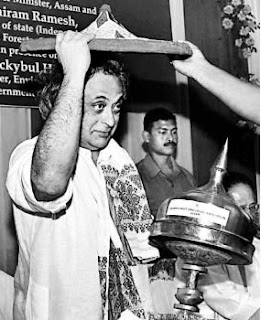"The Defence Minister Shri AK Antony has called upon the top brass of the Armed Forces to coordinate closely with various national cyber agencies and prepare crisis management action plan to counter cyber attacks and cyber terrorism….( source).
Referring to the use of large-scale energy resources in the Armed Forces, Shri Antony called upon the top brass to bring about strict energy conservation discipline. He also asked them to look for alternative sources of energy…
….he asked them to control the Revenue Expenditure in the Armed Forces by adopting various mechanisms such as increased use of technology, integration of the three Services, adopting joint training / procedures and uniform inventories. Shri Antony said there also exists considerable scope to improve the quality and efficacy of Defence Expenditure through increased Private Sector engagement, import substitution and indigenisation, improvement in procedures and practices and better project management within the parameters of the Government’s Policies."
I can imagine the scene. The Defence Minister making this long and completely vacuous speech, packed with motherhood statements, and the ‘top brass of the Armed Forces” looking in his direction ( not the same as listening) with as much solemnity that they can pack into their facial expressions and nodding their heads in agreement, but praying that the damn ordeal would get over soon.
Heads of Army, Navy and Air Force are equipped to handle nuclear wars, infiltration, mutinies, terrorist attack, guerilla ambush, threat from inter-continental ballistic missiles and enemy aircraft carriers that have entered Indian waters, but I doubt if their training manuals provide them any tactics or weapons to counter such verbal volleys from Ministers. Just for their endurance of this torture, they deserve all the medals that they wear on their uniforms. I look at them with new admiration.

